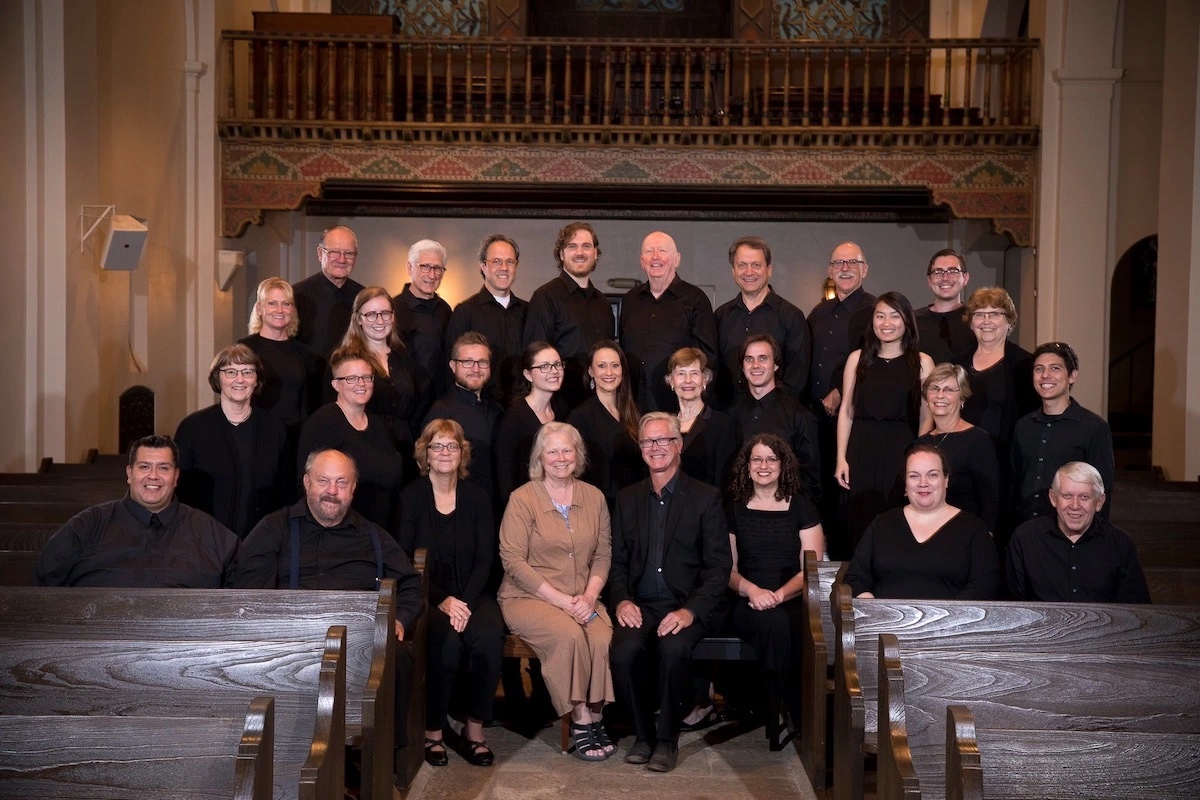As many formerly annual and predictable cultural events have sprung back to life over the past months, a warming sensation of deja vu/homecoming has become common for those on both sides of the stage. That sensation was especially true as the Quire of Voyces resumed its annual spring concert last weekend, in the almost mystical ambience of St Anthony’s Chapel. I missed the group’s Christmas concert due to Omicron-phobia, making this my first Quire encounter in three years, and it was a special occasion.
Relative to the group’s general mission of blending early and modern musical sources, the contemporary realm was the primary focus of this latest program, dubbed “Sacred Love.” Only 16th century Spanish composer Tomás Luis de Victoria (1548-1611) and British composer William Walton (1902-1983) provided touchstones to earlier choral tradition in intrepid founding director Nathan Kreitzer’s programming scheme spotlighting living composers. Among them: Santa Barbaran Stephen Dombek, the group’s composer-in-residence, showing his accomplished affecting hand with “Arise My Love” and a setting of George Herbert’s “Love Bade Me Welcome” (incidentally, also a source in Ralph Vaughan Williams Five Mystical Songs, heard at the Santa Barbara Choral Society concert a few weeks back).
Other memorable pieces in the program included Finnish composer Jaakko Mäntyjärvi’s “Pulchra es” — which both heeds traditional rules of choral conduct and dodges them — along with the plaintive sweetness of England’s Philip Stopford’s “If Ye Love Me” and the American Michael John Trotta’s “Ubi Caritas,” with Nichole Dechaine as an alluring soloist.
Fittingly, and poignantly, the program opened with eminent English choral composer John Rutter and his “A Ukrainian Prayer,” inducting us into the particular healing and human power of vocal music — especially of the choral sort, and particularly in the purity of this a cappella setting. As a logical bookend finale, the program’s youngest composer, American Jake Runestad (born in 1986) provided the moving “Let My Love Be Heard,” a lament of rising density and intensity, before a final sighing exhalation of a denouement. As heard here and now, lines from the Alfred Noyes text source circled back to mournful echoes of tragedies in Ukraine and Texas, etched in choral eloquence.
Support the Santa Barbara Independent through a long-term or a single contribution.




